Reflection by Monsignor Enrique Díaz: The Eucharist, in the living flesh
20th Ordinary Sunday
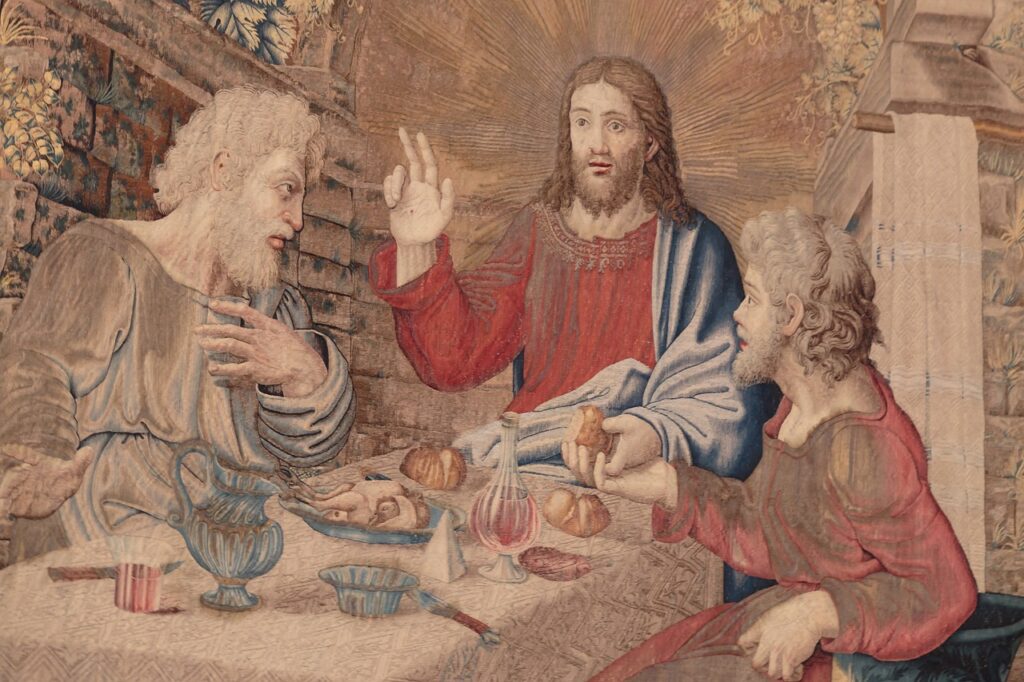
Monsignor Enrique Díaz Díaz shares with the readers of Exaudi his reflection on the Gospel of this Sunday, August 18, 2024, entitled: “The Eucharist, in the living flesh”.
***
Proverbs 9, 1-6: “Eat my bread and drink the wine I have prepared for you”
Psalm 33: “Taste and see how good the Lord is”
Ephesians 5, 15-20: “Try to understand what the will of God is”
Saint John 6, 51-58: “My flesh is true food and my blood is true drink”
When we listen to the words of Jesus, if we take them seriously, our interior is shaken and our whole being is shaken. We can fall into the temptation of a religion that is too cerebral or ritualistic. But today God puts himself within our reach: within reach of our hands, within reach of our lips. In Jesus, he has put himself at our disposal and tells us: hear, look, touch, see, taste; take and eat; take and drink. I am word, I am food, I am flesh and blood, I am way, truth and life.
Let us recall a little history. The people of Israel gradually filled the flesh and blood of the Passover lamb with meaning and symbolism. The same thing happened with the unleavened bread. From a simple rural motivation, from the pastoral festivals, they acquired the meaning of liberation. The flesh of the Passover lamb or the unleavened bread are not only the tasty morsel of a rural people who gather to enjoy what they have achieved with so much work. They do not even have the enthusiastic joy of those who thank God for the flocks or the crops and raise their songs and prayers for the fruits received. Bread, flesh and blood have a much deeper meaning: they are the sign of the liberation of a people who suffered the yoke of oppression and who, by the powerful hand of God, have achieved their freedom. The blood that stains the doorposts draws and recalls the exploits of the Lord; the meat, roasted, eaten in haste, brings to mind the first steps towards liberation and makes present, on this day and at this moment, the liberating God; the unleavened bread, barely put on the fire in haste, revives the journey through the desert, under the protective hand of their God. To speak of bread, of manna, of blood and flesh, is not to speak of unimportant signs, it is to touch the most intimate fibers of a people.
Because in those intimate fibers, in the living flesh, in the deepest and most sacred part of the people, is where Jesus makes himself present: “the bread that I will give you is my flesh, so that the world may have life.” It will no longer be the flesh or the blood of the lamb, it will no longer be the unleavened bread, it will be Jesus himself who becomes food so that man may have life. The term “flesh” designates the earthly condition of Jesus (“the Word became flesh”) and who now becomes food. The Incarnation is not only presence, but gives life, saves and nourishes. The Incarnation is not appearance, but the reality of Jesus who, made flesh, inserts himself deeply into the aspirations of every man, gives them meaning and fulfills them. Christ does not remain on the surface, nor is he content with appearances; Christ enters in living flesh into the history of man, of each and every man. He allows himself to be touched, felt, smelled, broken and swallowed. He is not an ideology that is learned, modified and distorted. Likewise, he is flesh that is eaten and gives life. God enters into us through the most natural path, that of the senses. He becomes an experience in every shared meal, in every bread distributed, and in every Eucharist celebrated.
When we receive Communion, it cannot remain, or should not remain, a merely external act. A reciprocal communion is created between Christ and the believer to such a degree that Christ tells us: “He who eats my flesh and drinks my blood remains in me and I in him,” a constant and stable permanence. Whoever believes in Jesus and lives in communion of faith and love with him, is mysteriously introduced into a divine friendship. “Eating the flesh of Christ” involves us in all his paschal dynamism. We enter into his same surrender, death and resurrection. It is not easy for the Jewish world to assimilate the words of Jesus, and it causes them scandal. Nor is it easy for us to assimilate and understand these words of Jesus in depth. There are those who receive Communion as a participatory act of a social event, very communicative, very exciting, but which remains on the outside and does not imply internal transformation. One enters into the whole mystery of the pain and suffering of Christ, one participates in the living flesh of his same mission, and one experiences his own resurrection. So deep, so compromising and so mystical is communion.
The banquet is a symbol of communion and intimacy. If, in addition, we have the Flesh and Blood of Jesus as our food in this banquet, it acquires a formidable force and integration. Each Eucharist makes us more like Jesus and opens up a thousand possibilities for meeting our brothers and sisters. Today, too, he tells each one of us that he is bread, flesh and blood for our life. How do I live the Eucharist and how do I experience this “remaining” in Jesus? Are the flesh, blood and bread elements that lead me to a full and complete liberation? Do they involve me in the mystery of salvation?
Our Father, you want our Community to be an example of fraternity, of communion, of sharing, of living the Eucharist as the source and culmination of our Christian life. Grant that, united to Christ, we may seek full life for all humanity. Amen
Related
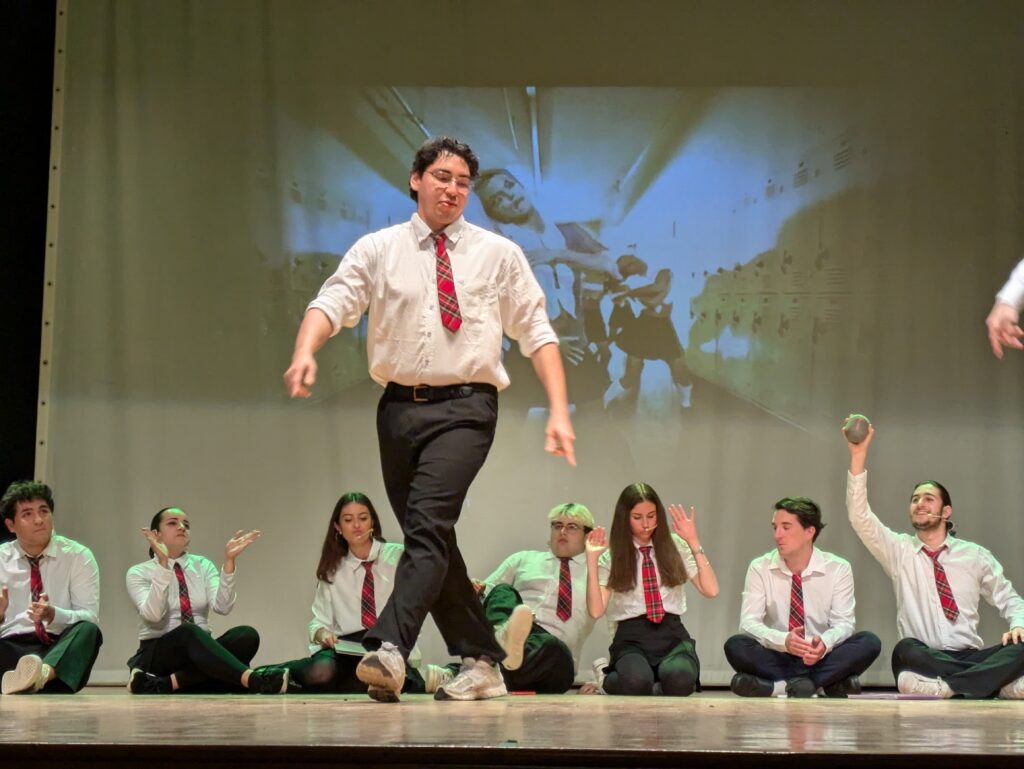
“Highway to Heaven” Arrives in Rome: Carlo Acutis’ Musical Evangelizes with Art and Heart
Exaudi Staff
09 April, 2025
2 min
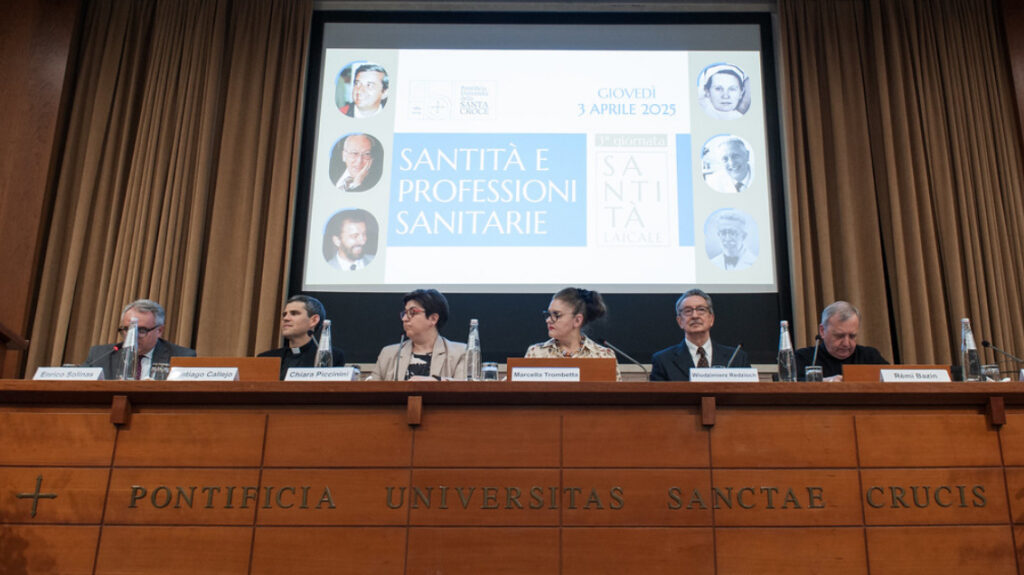
University of the Holy Cross: A Day on Lay Holiness
Wlodzimierz Redzioch
08 April, 2025
3 min
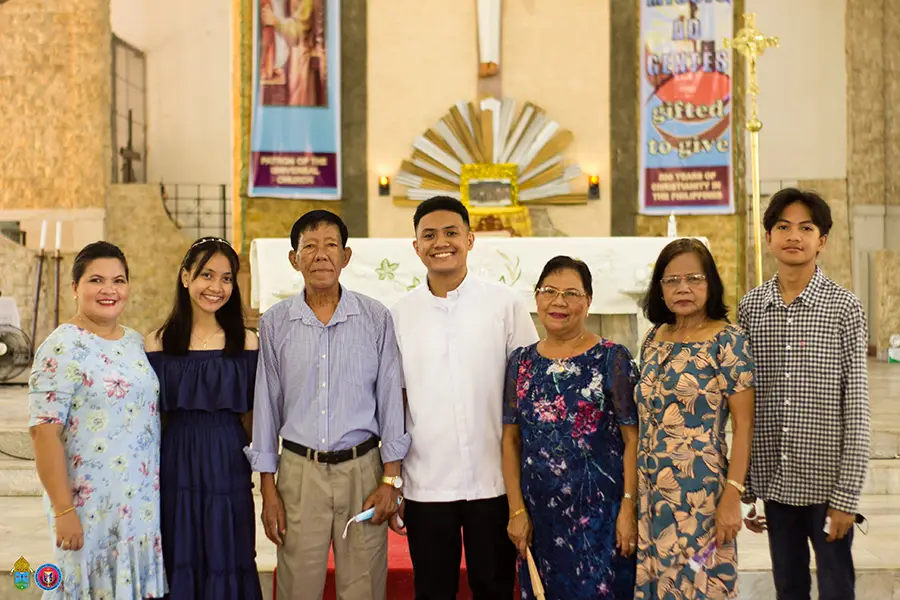
“Spain must preserve the faith it once transmitted to us”
Fundación CARF
07 April, 2025
7 min
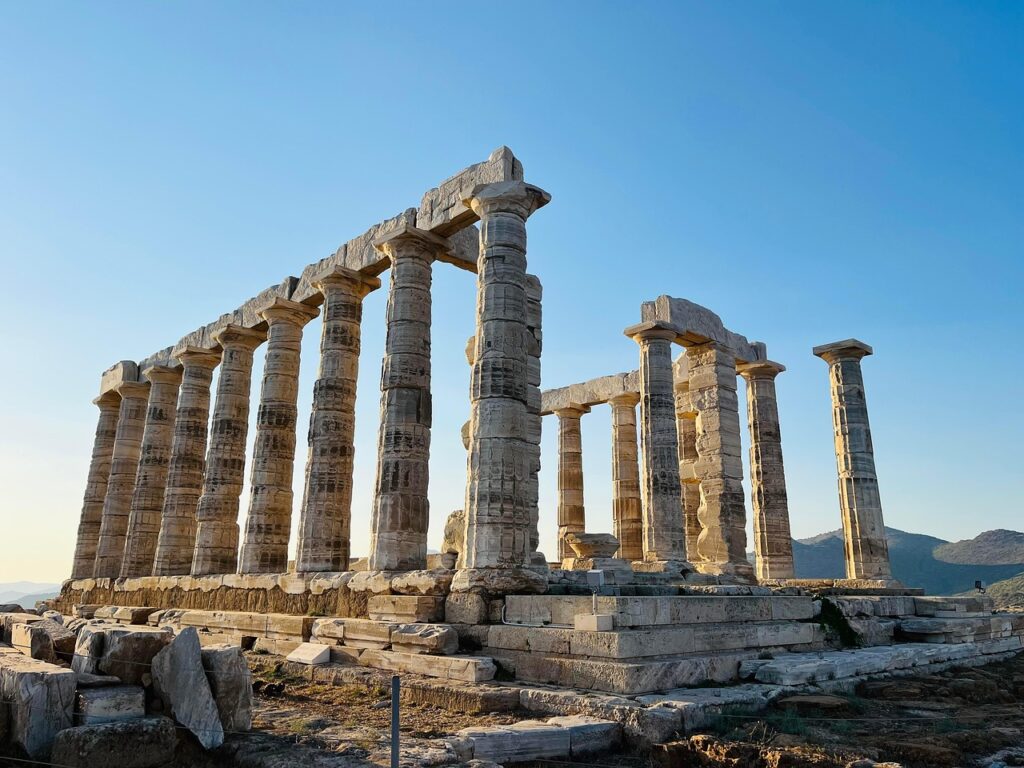
He who is without sin, let him cast the first stone: Fr. Jorge Miró
Jorge Miró
06 April, 2025
3 min
 (EN)
(EN)
 (ES)
(ES)
 (IT)
(IT)

